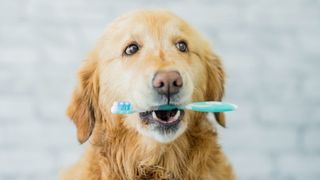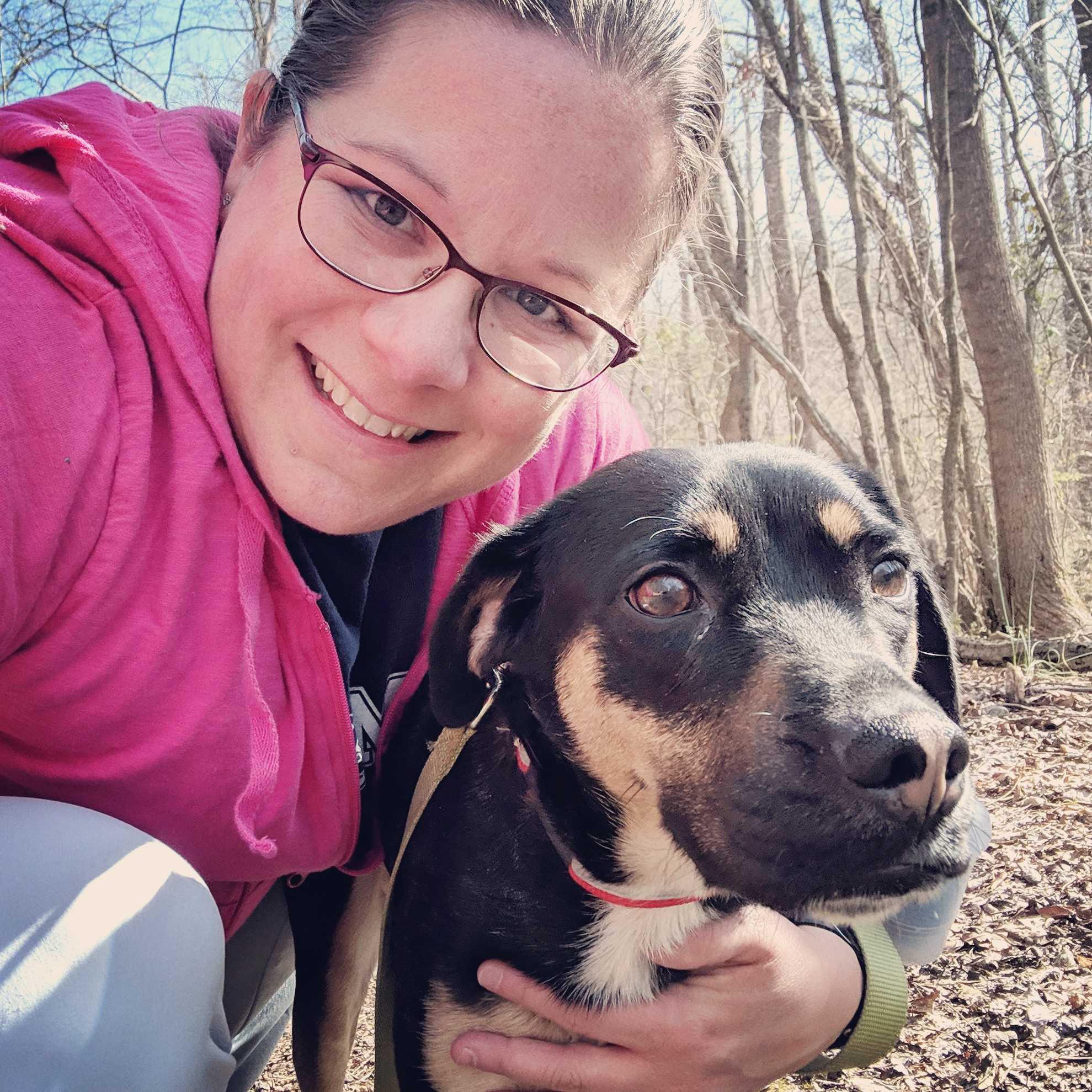How to clean dog teeth without brushing
Does your dog hate having their teeth cleaned? Find out how to clean dog teeth without brushing

While many dog owners know that daily toothbrushing is the best option for dental health, it’s only natural to wonder how to clean dog teeth without brushing. A number of products, such as the best dental chews for dogs, claim to be effective in promoting canine oral health, but it can be hard to sift through options and distinguish fact from fiction.
Home dental care isn’t a purely cosmetic issue. A lack of dental care can result in serious consequences for your dog’s health, such as infections and fractures of the jaw bone. Dental infections can also spread through the blood to other areas of the body, such as the heart, kidneys, and liver. Veterinarian-provided dental cleanings are one component of dental health, but home dental care also plays a key role in preventing serious dental disease.

Dr. Barnette is a graduate of the University of Florida, where she received both her B.S. in Zoology and her Doctor of Veterinary Medicine (DVM). She has 15 years of clinical experience as a small animal veterinarian, treating dogs, cats, and occasional exotic patients. Learn more about Dr. Barnette at www.linkedin.com/in/catherinebarnette.
Brushing is best
If you’re wondering how often should I brush my dog's teeth, vets recommend that brushing once daily is essential, in order to remove plaque before it hardens into tartar. Plaque (the fuzzy film you may occasionally notice on your teeth when you wake up in the morning) is a collection of bacteria and food particles. Unlike tartar, plaque can easily be removed with a toothbrush. Once plaque remains in your dog’s mouth for 24-48 hours, however, it hardens into tartar. Tartar is nearly impossible to remove with brushing or other home care measures.
Many dogs tolerate daily brushing well, especially if it’s introduced at an early age. Be sure to use a toothpaste specifically designed for dogs, because dog toothpaste is fluoride-free and designed to be tasty for dogs. Follow our directions on how to brush a dog’s teeth and talk to your veterinarian for further guidance.
If you’ve invested the time and effort to introduce brushing and your dog still won’t tolerate it, you may need to find an alternative method of home dental care.
Is it OK to not brush your dog's teeth?
Daily brushing is the best way to care for your dog’s teeth, but it’s not realistic for every dog or owner. If you can’t brush your dog’s teeth, there are other options for home dental care.
Be aware, however, that non-brushing alternatives are typically less effective than brushing. Therefore, your home care may need to be supplemented with more frequent veterinary dental cleanings, which are performed under general anesthesia. (For more information on the costs associated with veterinary dentistry, see How much does dog teeth cleaning cost.) Most dogs need a veterinary dental cleaning every one to two years. However, dogs that do not receive regular brushing at home, especially small breed dogs, may need their teeth cleaned as often as every six months.
How to clean a dog's teeth without brushing
There are a variety of non-brushing options for home dental care.
Oral hygiene rinses, such as Vetoquinol’s Dentahex Oral Hygiene Rinse, function similarly to mouthwash in humans. The rinse is applied to your dog’s mouth once daily, with the goal of coating the teeth. Oral hygiene rinses have antibacterial properties that help reduce plaque and tartar formation..
Dental treats mechanically scrape plaque and tartar from the surface of the teeth. Some dental treats also contain an enzymatic cleaner to further reduce plaque and tartar. Follow label recommendations when giving your dog any dental chew, as this is how they are tested and how they are deemed to be most effective. Feeding excessive dental chews or treats can contribute to obesity, so this is probably not a good option for overweight dogs.
Finally, water additives can be a low-maintenance way to improve your dog’s oral health. Water additives are unlikely to be as effective as brushing, oral hygiene rinses, or even dental chews, but they’re an easy option that’s better than doing nothing. Dechra’s Vetradent Water Additive, for example, can be added to your pet’s drinking water to reduce plaque and oral bacteria in both dogs and cats.

What foods clean dogs teeth?
There are a number of dental diets designed to keep dog teeth clean and healthy. These diets scrape the edges of your dog’s teeth during chewing, instead of crumbling into powder with the first bit of pressure from your dog’s teeth.
While a number of diets that claim to promote dental health, many veterinarians recommend Hills t/d or Royal Canin Veterinary Dental Diet. These diets are available only with a veterinary prescription, and are specially designed and tested to ensure that they promote dental health.
How can I clean my dog’s teeth naturally?
The best ways to clean your dog’s teeth naturally are through the use of daily brushing and dental chews. Additionally, frequently engaging in play with rope toys and other toys may help remove some plaque and slow the formation of tartar.
While some websites tout coconut oil as an effective natural toothpaste for dogs, there is no evidence to support this claim. Coconut oil can cause gastrointestinal issues and even allergic reactions in some dogs.
Summary
While toothbrushing is certainly the best dental hygiene option, you may wonder how to clean dog teeth without brushing. If your dog will not tolerate daily brushing, consider an oral hygiene rinse, dental chew, water additive, or dental diet. While these dental home care options may not be quite as effective as brushing, they can still play a valuable role in keeping your dog’s teeth clean and reducing the frequency of necessary veterinary dental cleanings.
PetsRadar Newsletter
Get the best advice, tips and top tech for your beloved Pets
Dr. Barnette is a graduate of the University of Florida, where she received both her B.S. in Zoology and her Doctor of Veterinary Medicine (DVM). She has 15 years of clinical experience as a small animal veterinarian, treating dogs, cats, and occasional exotic patients. She now works as a freelance veterinary writer, creating educational content for veterinarians, veterinary team members, and dedicated pet owners. Dr. Barnette lives in southwest Florida with her husband and daughter (plus two cats, a dog, and a rescued dove!) and enjoys kayaking, biking, and hiking. Learn more about Dr. Barnette at www.linkedin.com/in/catherinebarnette.
